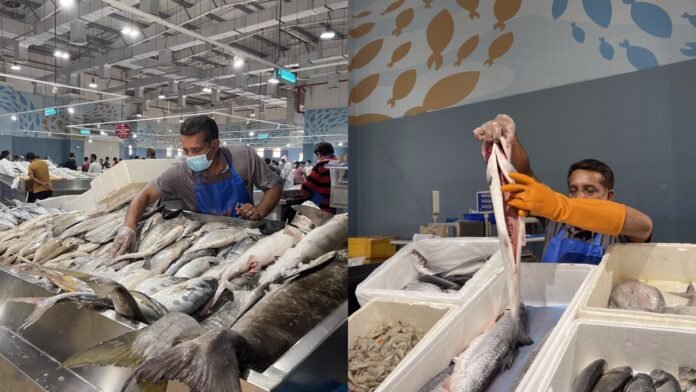The Central Wholesale Fish Market in Muscat will close for five days during Eid Al Adha, from Thursday, June 5, to Monday, June 9, 2025. The Ministry of Agriculture, Fisheries and Water Resources confirmed the closure to allow workers time to observe the religious holiday. The market will reopen on Tuesday, June 10, resuming normal operations across all sections.
Meanwhile, fish exporters may continue their shipments during the closure, provided they comply with Ministerial Resolution No. 75/2019. This regulation governs the export of specific fish species, ensuring quality, traceability, and environmental balance. The Central Wholesale Fish Market will not process domestic sales during this break, reinforcing the importance of early planning for businesses and consumers alike.
Authorities reminded people to buy their seafood early before the market closes for Eid Al Adha. This will help avoid problems like price increases or crowded markets at the last minute. The ministry’s notice matches the official Eid holiday for public and private sector workers across Oman. Because of this, the break is part of a larger plan to support holiday celebrations. It also shows the country’s focus on keeping traditions and making sure everyone can enjoy the Eid holiday.
The Central Wholesale Fish Market plays a key role in Oman’s seafood distribution network. Its temporary closure reflects broader logistical adjustments made during major religious observances. Despite the pause in sales, Oman’s fish export sector will continue operating through regulated channels.
For detailed guidance on permitted exports and related documentation, exporters should refer to the ministry’s official circulars. Any violation of export laws may result in penalties or temporary suspension from the system. Clear communication and compliance remain essential for uninterrupted operations.
Ultimately, the Central Wholesale Fish Market’s closure underscores the integration of economic activity with cultural celebration. The ministry’s coordination ensures balance between religious observance and essential trade continuity. As Eid approaches, both vendors and buyers must adjust schedules accordingly.


